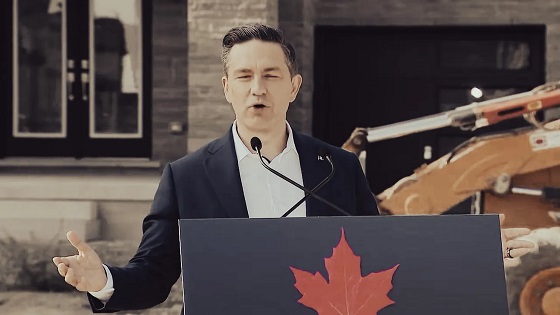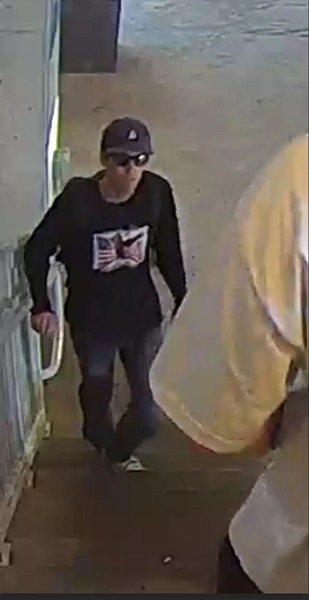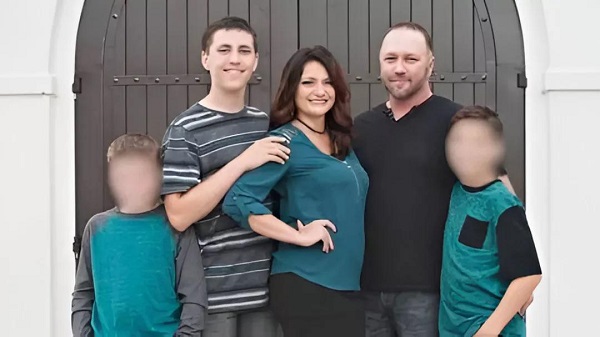2025 Federal Election
Liberal MP Paul Chiang Resigns Without Naming the Real Threat—The CCP


 Dan Knight
Dan Knight
After parroting a Chinese bounty on a Canadian citizen, Chiang exits the race without once mentioning the regime behind it—opting instead to blame “distractions” and Donald Trump.
So Paul Chiang is gone. Stepped aside. Out of the race. And if you’re expecting a moment of reflection, an ounce of honesty, or even the basic decency to acknowledge what this was really about—forget it.
In his carefully scripted resignation statement, Chiang didn’t even mention the Chinese Communist Party. Not once. He echoed a foreign bounty placed on a Canadian citizen—Joe Tay—and he couldn’t even bring himself to name the regime responsible.
Instead, he talked about… Donald Trump. That’s right. He dragged Trump into a resignation about repeating CCP bounty threats. The guy who effectively told Canadians, “If you deliver a Conservative to the Chinese consulate, you can collect a reward,” now wants us to believe the real threat is Trump?
I haven’t seen Donald Trump put bounties on Canadian citizens. But Beijing has. And Chiang parroted it like a good little foot soldier—and then blamed someone who lives 2,000 miles away.
But here’s the part you can’t miss: Mark Carney let him stay.
Let’s not forget, Carney called Chiang’s comments “deeply offensive” and a “lapse in judgment”—and then said he was staying on as the candidate. It wasn’t until the outrage hit boiling point, the headlines stacked up, and groups like Hong Kong Watch got the RCMP involved, that Chiang bailed. Not because Carney made a decision—because the optics got too toxic.
And where is Carney now? Still refusing to disclose his financial assets. Still dodging questions about that $250 million loan from the Bank of China to the firm he chaired. Still giving sanctimonious speeches about “protecting democracy” while his own caucus parrots authoritarian propaganda.
If you think Chiang’s resignation fixes the problem, you’re missing the real issue. Because Chiang was just the symptom.
Carney is the disease.
He covered for it. He excused it. He enabled it. And now he wants to pose as the man who will stand up to foreign interference?
He can’t even stand up to it in his own party.
So no, we’re not letting this go. Chiang may be gone—but the stench is still in the room. And it’s wearing a tailored suit, smiling for the cameras, and calling itself “leader of the Liberal Party.”
Subscribe to The Opposition with Dan Knight .
For the full experience, upgrade your subscription.
2025 Federal Election
NDP’s collapse rightly cost them official party status

This article supplied by Troy Media.
 By Michael Taube
By Michael Taube
Official party status requires 12 seats. The NDP got seven. End of story
Rules are rules.
That, in a nutshell, is why the NDP wasn’t granted official party status in the House of Commons on Monday. Prime Minister Mark Carney and the
Liberals, to their credit, made the right decision.
Let’s examine why.
The 1963 Senate and House of Commons Act passed an amendment that gave an annual allowance to party leaders other than the prime minister and
leader of the Opposition. In doing so, the Canadian government had to establish what constitutes a “political party.” The definition they came up with was a sensible one: it had to have a “recognized membership of 12 or more persons in the House of Commons.”
This important amendment is still used today.
The NDP fell from 24 to a paltry seven seats in last month’s federal election. (There are a total of 343 seats in the House of Commons.) They finished with 1,234,673 votes, or 6.29 per cent, which was behind the Liberals, Conservatives and Bloc Québécois. Party leader Jagmeet Singh, who had represented the former Burnaby South riding since 2019, finished a distant third in the newly created Burnaby Central riding and resigned.
The NDP’s seven seats is well below the 12-seat requirement needed for official party status. This means Canada’s socialist alternative won’t be able to ask questions in the House of Commons and will lose out on money for research purposes.
Or, to put it another way, they’re plumb out of luck.
Hold on, some people said. They pointed out that the NDP’s seat count and popular vote only plummeted because many progressive voters backed Carney and the Liberals as the best option to counter U.S. President Donald Trump and his tariffs. They felt that the NDP’s long history as a champion for unions and the working class should count for something. They suggested there should be an exception to the rule.
Guess what? They’re wrong.
This is the worst election result in the party’s history. Even its predecessor, the Co-operative Commonwealth Federation (CCF), did marginally better in its first campaign. The CCF won seven out of 245 seats—and earned 410,125 votes, or 9.31 per cent—in the 1935 election. Party leader J.S. Woodsworth, who had represented the riding of Winnipeg North Centre as an Independent Labour MP since 1925, comfortably held his seat.
Meanwhile, this won’t be the first time they’ve ever lost official party status.
The NDP dropped from 43 to nine seats in the 1993 election. It was a dismal showing, to say the least. There was a suggestion at the time that then-party leader Audrey McLaughlin, the first woman to lead a party with political representation in Canada’s House of Commons, deserved a better fate. While the NDP certainly came closer to achieving the 12-seat requirement in this particular election, Prime Minister Jean Chrétien and the Liberals decided against granting them official party status.
Why? As I mentioned earlier, rules are rules.
Then again, British pilot Harry Day notably told his fellow flying ace Douglas Bader in 1931, “You know my views about some regulations—they’re written for the obedience of fools and the guidance of wise men.”
Does this mean that individuals and organizations who follow rules are, in fact, fools? Not at all. While certain rules in a liberal democratic society can range from slightly questionable to utterly ridiculous, they’re usually put in place for a specific purpose.
In the case of the House of Commons, it’s to ensure that a bar has been set with respect to political representation. Is 12 seats the right number? That’s difficult to say. It certainly prevents small protest parties and one-issue parties that unexpectedly win a tiny number of seats in an election from acquiring power and status right off the bat. They need to win more seats and grow in size and stature to reach a point of respectability. Most of them never reach this point and disappear while others float in a constant state of mediocrity like the Green Party of Canada. ’Tis the nature of the political beast.
One final point. If Singh and the NDP had reached double digits in total number of seats in 2025, a solid case could have been made in favour of official party status. If they had finished with 11 seats, it would have almost been a lock. Neither scenario ultimately materialized, which is why Carney and the Liberals did exactly what they did.
Michael Taube is a political commentator, Troy Media syndicated columnist and former speechwriter for Prime Minister Stephen Harper. He holds a master’s degree in comparative politics from the London School of Economics, lending academic rigour to his political insights.
Troy Media empowers Canadian community news outlets by providing independent, insightful analysis and commentary. Our mission is to support local media in helping Canadians stay informed and engaged by delivering reliable content that strengthens community connections and deepens understanding across the country.
2025 Federal Election
Judicial recounts give Conservatives 2 more seats, keeping Liberals short of majority

From LifeSiteNews
After a judicial recount, Conservative candidate Kathy Borrelli has officially won over Liberal incumbent Irek Kusmierczyk, in the Ontario riding of Windsor-Tecumseh-Lakeshore.
Judicial recounts from the 2025 federal election have given the Conservative Party two new seats, with one candidate winning by just four votes.
After a judicial recount, Conservative candidate Kathy Borrelli has officially won over Liberal incumbent Irek Kusmierczyk, in the Ontario riding of Windsor-Tecumseh-Lakeshore.
Borrelli got 32,090 votes, with Kusmierczyk getting 32,086 votes, and NDP candidate Alex Ilijoski getting 4,240 votes.
In the Newfoundland riding of Terra Nova-The Peninsulas, Conservative candidate Jonathan Rowe beat out Liberal Anthony Germain by just 12 votes after a recount with the initial result showing a Liberal victory.
The new election results mean the Conservatives now have 144 seats with the Liberals at 169, three short of a majority.
Judicial recounts are automatically triggered when the margin of victory for a candidate is less than 0.1 percent of valid votes.
While these recounts have favored the Conservatives, others have gone in the Liberal Party’s favor.
A May 16 judicial recount switched the southern Ontario riding of Milton East-Halton Hills South to the Liberals with a 21-vote victory over the Conservatives.
Overall, the election results have been a big blow to the Conservative Party, which on top of losing the election also saw its leader, Pierre Poilievre, fail to win his long-held seat. However, Poilievre is expected to run in a yet-to-be-announced by-election in Alberta to reclaim a seat in Parliament.
-

 espionage2 days ago
espionage2 days agoInside Xi’s Fifth Column: How Beijing Uses Gangsters to Wage Political Warfare in Taiwan — and the West
-

 Censorship Industrial Complex2 days ago
Censorship Industrial Complex2 days agoDecision expected soon in case that challenges Alberta’s “safe spaces” law
-

 Education2 days ago
Education2 days agoOur kids are struggling to read. Phonics is the easy fix
-

 International2 days ago
International2 days agoBrazil sentences former President Bolsonaro to 27 years behind bars
-

 Energy1 day ago
Energy1 day agoThe IEA’s Peak Oil Fever Dream Looks To Be In Full Collapse
-

 Crime1 day ago
Crime1 day agoTransgender Roomate of Alleged Charlie Kirk Assassin Cooperating with Investigation
-

 COVID-191 day ago
COVID-191 day agoWhy FDA Was Right To Say No To COVID-19 Vaccines For Healthy Kids
-

 Crime18 hours ago
Crime18 hours agoDown the Charlie Kirk Murder Rabbit Hole



